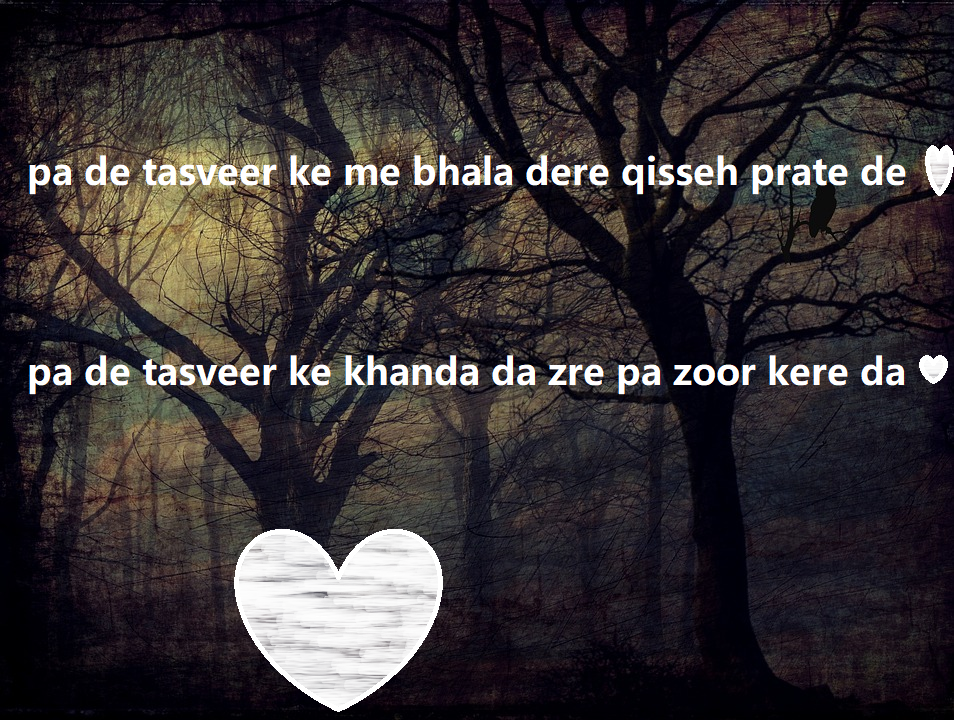
100 Pashto Poetry Shayari shairi Pashto Poetry lovers Quote Poetry
The poem's first line sounds as though it will be a conventional - and clichéd - celebration of conflict. You'll see that in the first two lines we've removed the verb 'are' that occurs in the Pashto and in Dawood's literal translation; this has the effect of making these lines sound archaic - rather like Shakespearian English - which signals that the opening of the poem.

Pin by iiTx Khan on Pashto poetry Poems, Poetry, Pashto shayari
The members meet online to share poems as a means to speak Pashto and to trade jokes and landays about missing home — Kabul-jan, dear Kabul — and being separated from it. One of the most often repeated words in landays is musafir — traveler — which essentially describes anyone far from home, including Afghans who leave the country for education, to make a living, or to escape war.
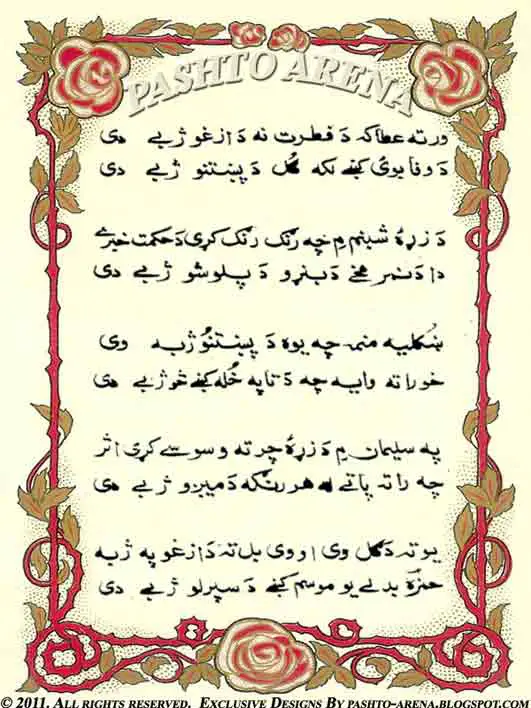
Pashto Poems
Pashto poems, also known as Pashto Shayari, are a mesmerizing form of literature that encapsulates the rich cultural heritage of the Pashtun people. Originating from the Pashto language, these poems beautifully express emotions, thoughts, and observations about various aspects of life. Whether it is love, nature, or the pursuit of wisdom.
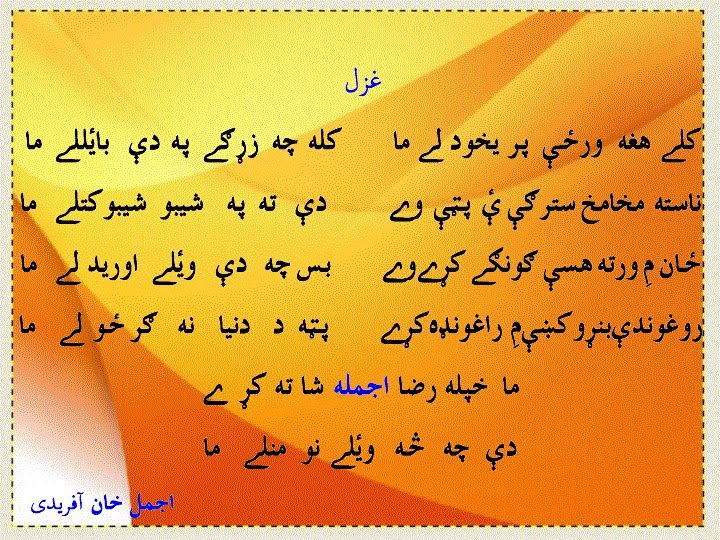
New Best pashto poetry Nazo anah Toki to World Poetry Site
This selection was made during 2002 to introduce Pashto poetry to a group of friends spread all over the world who were interested in Afghanistan. We communicated to Internet. I selected some of the poems I liked and proposed a first draft of translation. My other friends who knew English far better than I did, helped improving the translation.
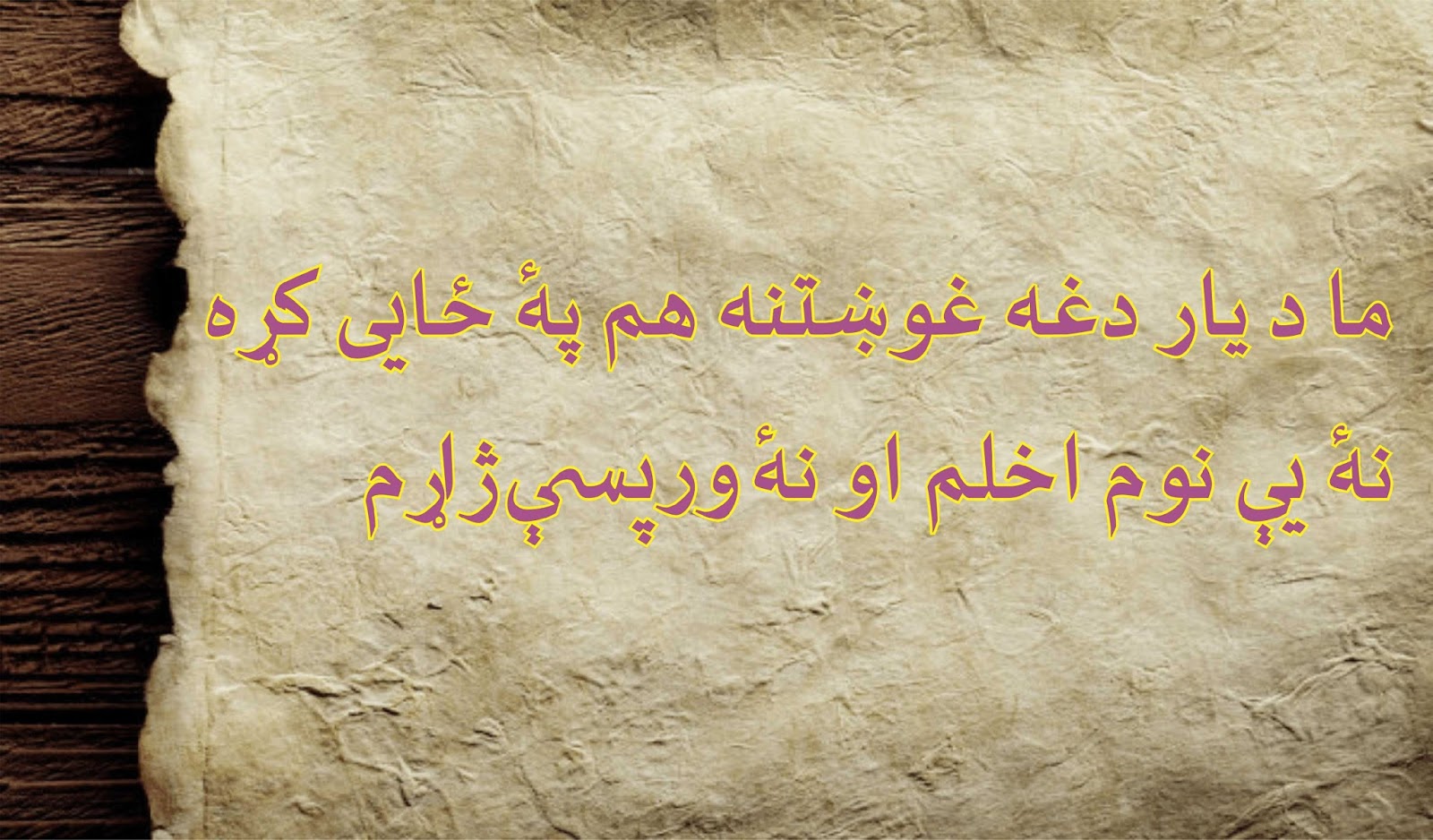
Abdul Rahman Baba Poetry in Pashto
Pashto literature (Pashto: پښتو ليكنې) refers to literature and poetry in Pashto language.The history of Pashto literature spreads over five thousands years having its roots in the oral tradition of Tappa (Pashto: ټپه/لنډۍ).However, the first recorded period begins in 7th century with Amir Kror Suri (a warrior poet). Later, Pir Roshan (1526-1574), who founded his own Sufi.
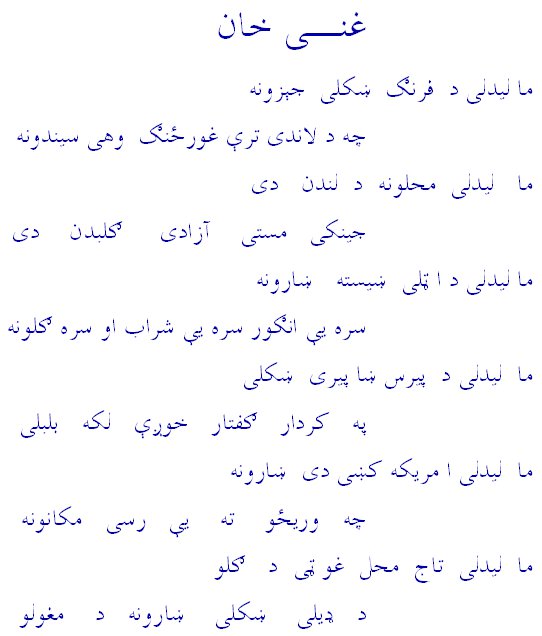
Pashto Adabi Panra Poetry, Pashto Poem, Ghani Khan
that was a positive action for the Farsi poetry, but when it was time for the Pashto poetry to be analyzed, the Arabic prosodic system was not fit for the Pashto poetry. The first one ṇwho thought about the prosody in Pashto language was the Pashto language famous and prominent scholar the follower of the Roshani school, Dawlat Lawa ṇi,
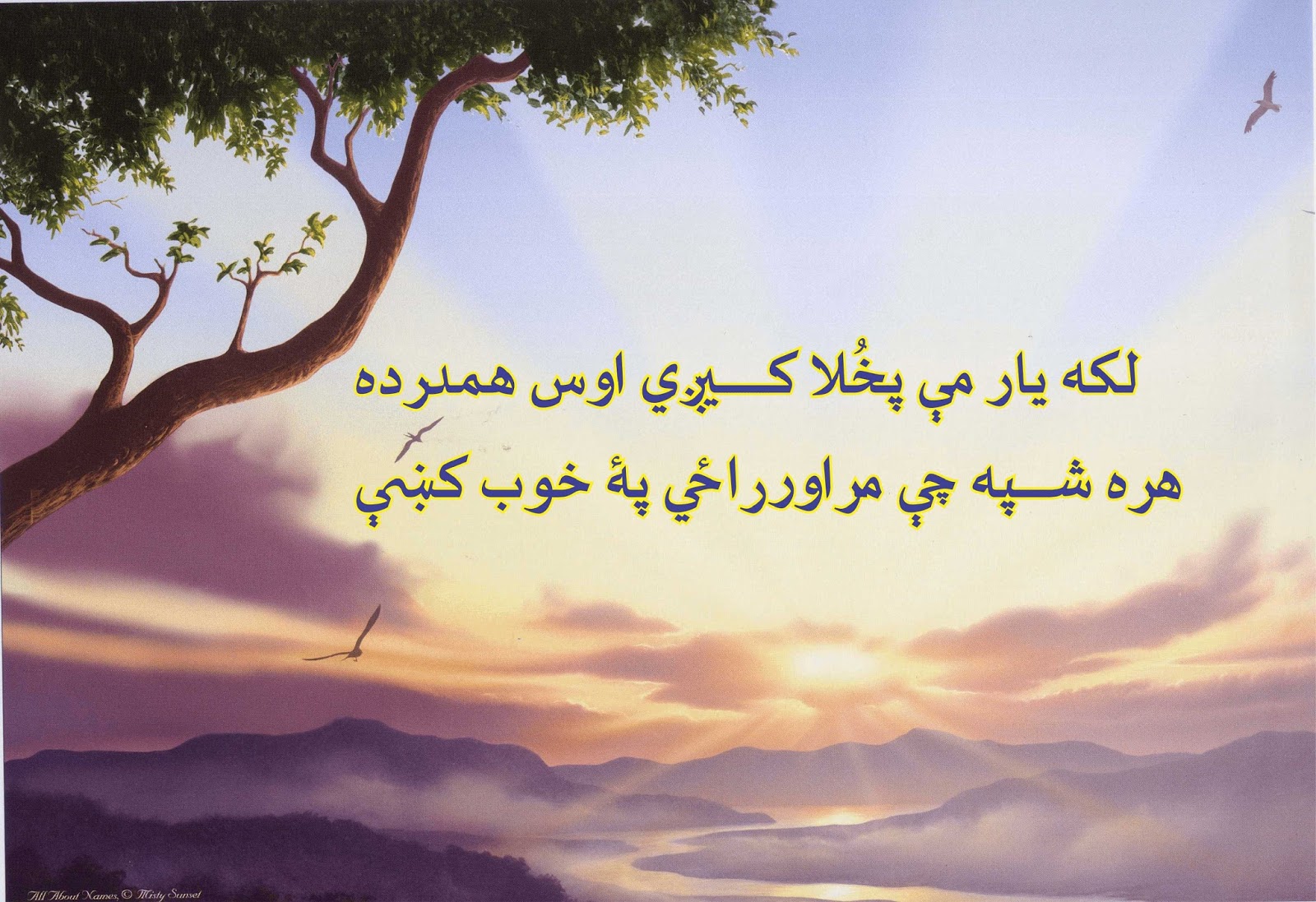
Abdul Rahman Baba Poetry in Pashto
A beautiful rendition of this poem in Afghanistan in the 1980s. Khan abandoned the theme of morality, which had dominated Pashto poetry for centuries. He broke new ground by focusing on aesthetics instead. "I think the mission of a poet in life is quite different from that of a preacher," he wrote to an Afghan poet friend, Abdul Rauf Benawa.
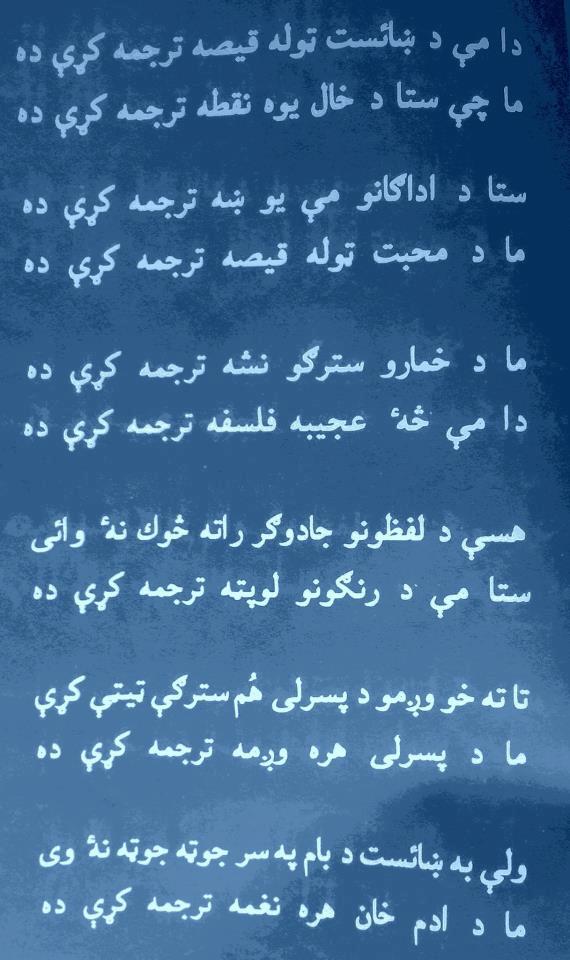
Pashto Love Poem Pashto Best Poem Pashto Best Ghazal to World Poetry Site
We translate leading contemporary poets from Africa, Asia and Latin America, all of whom are highly respected in their own culture. By translating their poetry we aim to introduce them to new audiences in the hope that their work will have an impact on poetry written in English.

Pashto Shayari, Pashto Quotes, Poetry Lines, Sad Pictures, Sad Wallpaper, Poetry Quotes, Poems
He, along with his contemporary Khushal Khan Khattak, is considered to be one of the most popular poets of the Pashto language. His poetry expresses the mystical side of Islam, in line with his Sufi-oriented nature. Rahman's lineage. Rahman Baba was a Momand sub-tribe of the Ghoryakhel Pashtuns. Rahman apparently lived peacefully in the area.

77 Elegant Pashto Funny Poems Poems Ideas
All poems in Pashto Let's Unite راځئ چې یو شو. Syed Shah Saud. About. conflict; longing; love; Kabul and Peshawar Are the Closest of Friends پېښور او کابل دواړه دوه ياران دي. Rahmat Shah Sayel. About. desire; conflict; Pride. Abdul Bari Jahani. Oh Warrior of My Sacred Land Apologies: the Pashto isn't.

Pashto Poems
The first Pashto poem is widely considered to have been written by the warrior and poet Amir Kror Suri in the 8th century, although the historical authenticity of this is hotly contested, with experts considering the book cited as a source in support of this claim to be a forgery. The endurance of this belief despite the lack of hard textual.
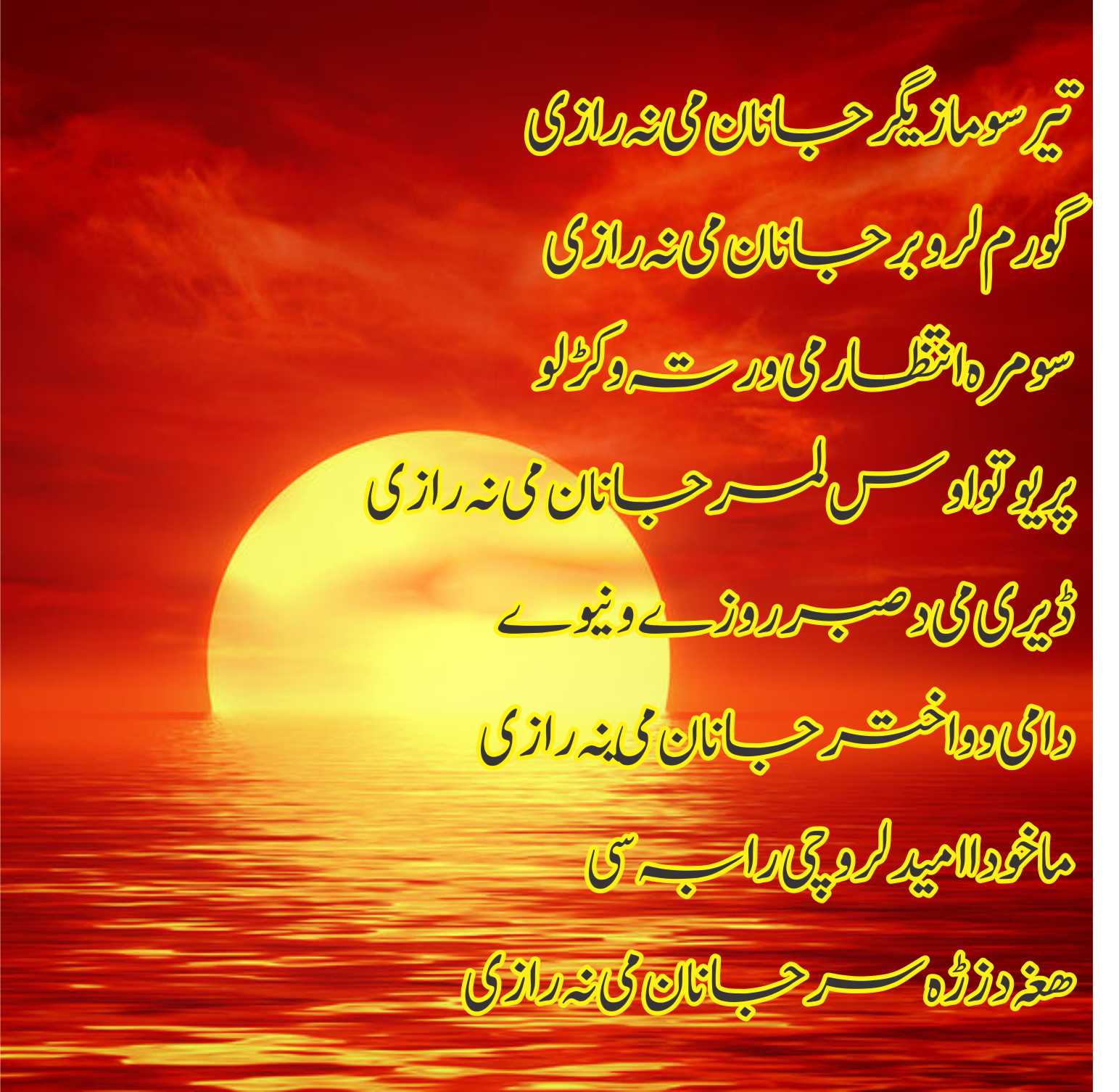
Pashto Poetry Shayari Love Romantic All
Pashto Poems - Examples of all types of pashto poetry to share and read. This list of new poems is composed of the works of modern poets on PoetrySoup. Read short, long, best, and famous poem examples for pashto. Search Pashto Poems: Gali Galoch. Sadi gaal gaal tawadi gaal josh obaal, Sadi gaal gaal tawadi gaal hunar Kamal..

Pashto Poetry Poetry, Love, Quotes
Introduction Ghani Khan was born in Hashtnagar. He is widely considered the best pashto language poet of the 20th century and stands on a par with Khushal Khan Khattak and Rehman Baba. He was the son of the Red-Shirt Leader, Khan Abdul Ghaffar Khan, aka Bacha Khan and The Frontier Gandhi.His wife Roshan came from a parsi family and was the
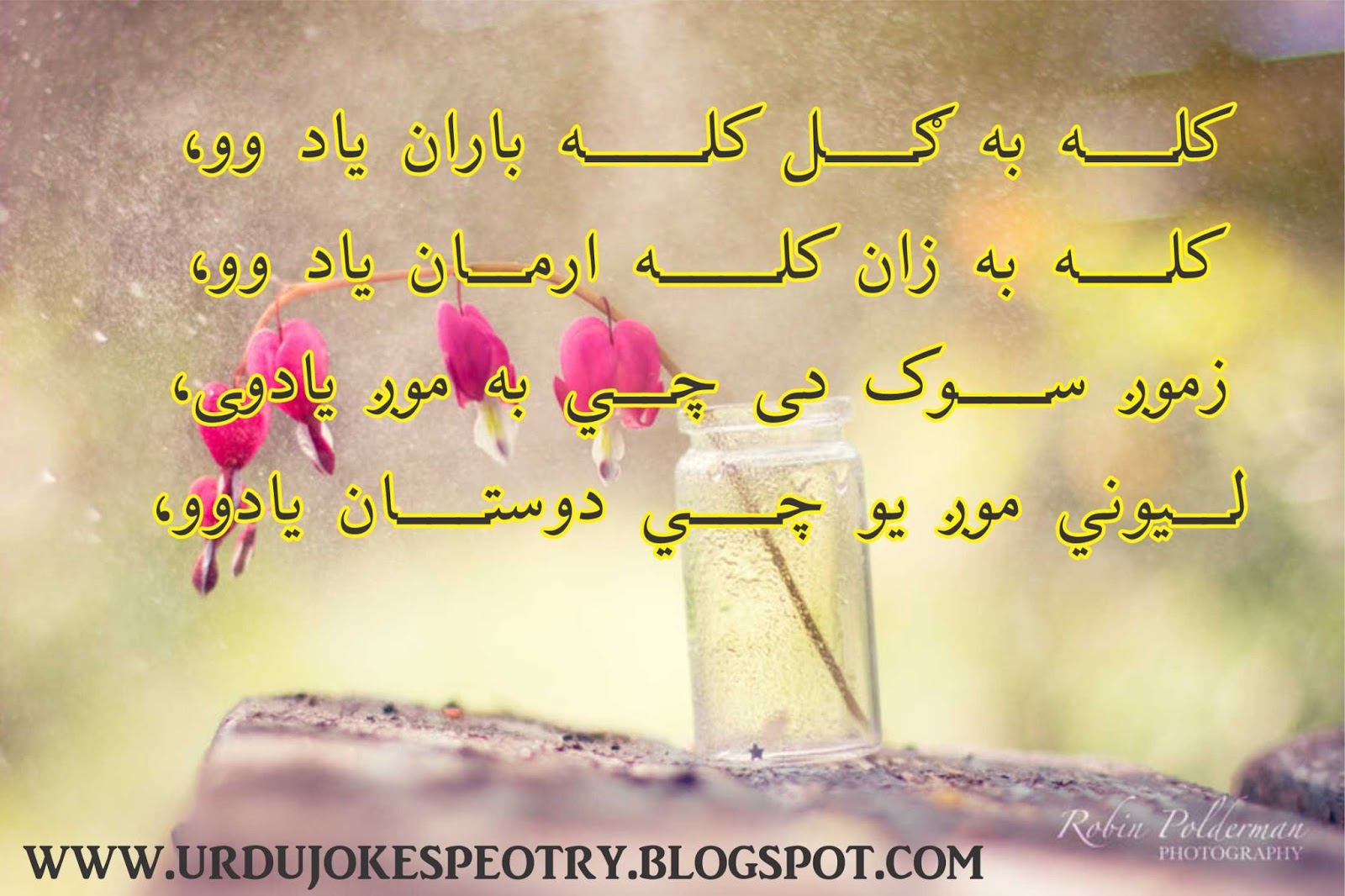
Pashto Poetry Shayari Love Romantic All
Khushal Khan Khattak is a prolific writer, poet, politician, and community leader of Pashtun nation. He, as a leader, understood the spirit and soul of the Pashtuns at that time.

Pashto Poem New Era by Mir Wais English Translation Khyber Pakhtunkhwa Afghanistan
The Pashtun community, mostly in mainland Pakistan and Afghanistan, and most Pashtuns are interested in poetry. Speaking of Pashto poets, they are known as the best poets from about 1400 years to date. Pashto Language poets are famous all over the world for their realistic poetry and heart-rending poems and verses. Different books of Pashto.
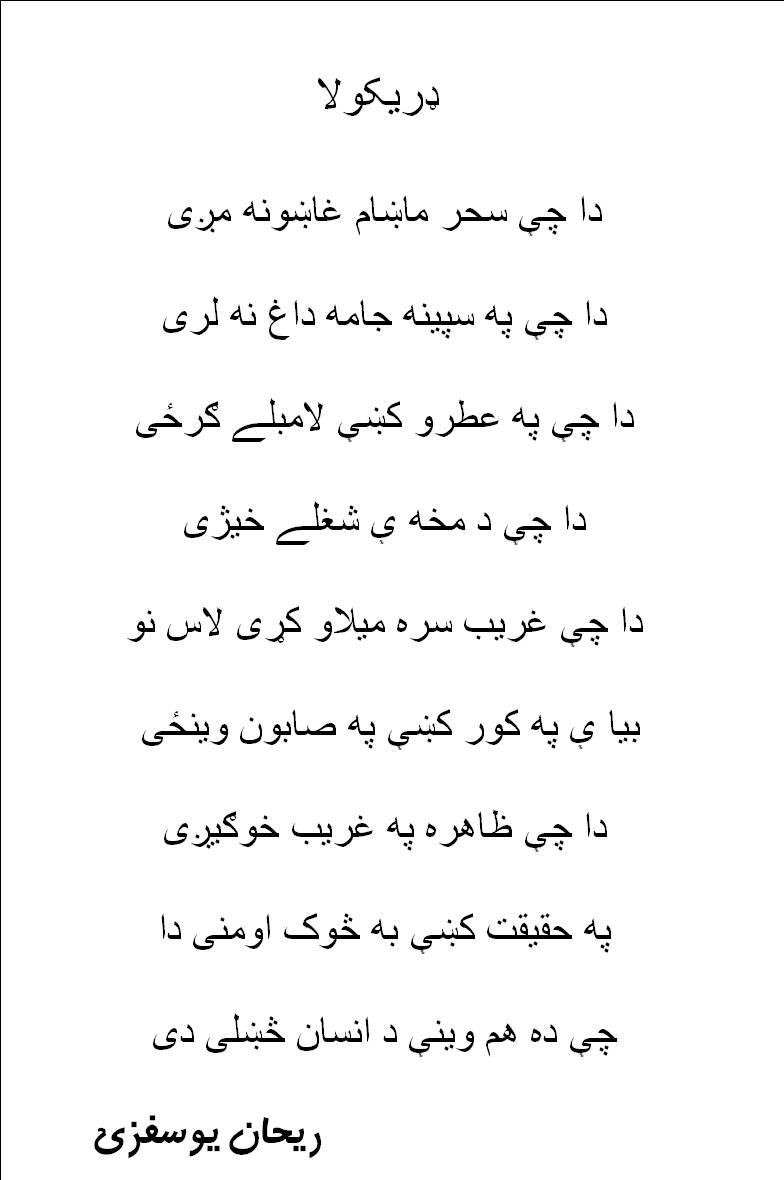
Rehan yousufzai pashto poetry Poetry Photo (39598662) Fanpop
This is a list of Pashto language poets. Folkloric. Amir Kror Suri; 16th century. Pir Roshan (1525-1585), poet, warrior, and intellectual; 17th and 18th century. Khushal Khattak (1613-1689) born in Nowshaar Province, Peshawar, Afghanistan, he was a poet, warrior, and chief. Nazo Tokhi (1651.